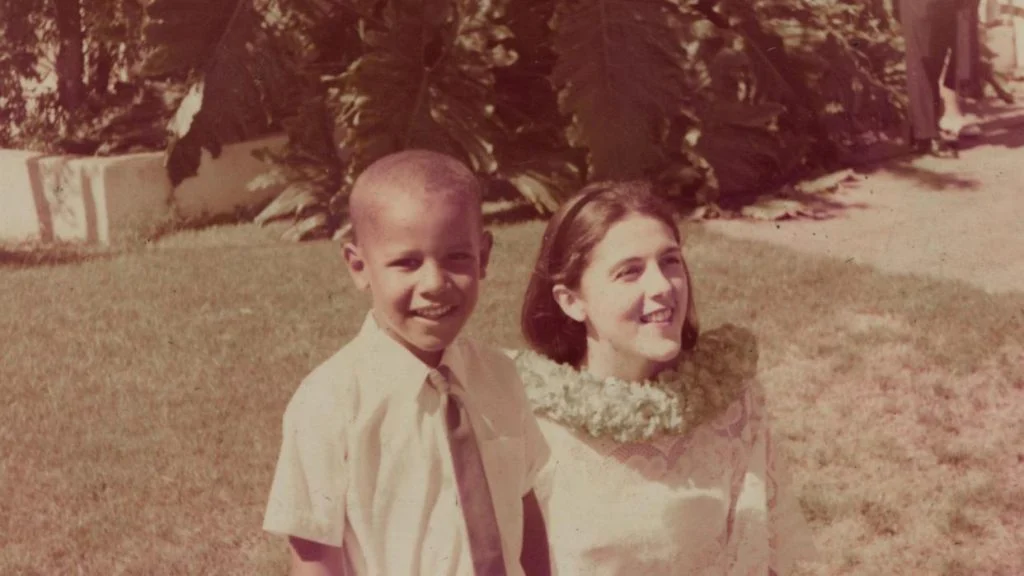Ann Dunham, the mother of former President Barack Obama, led a life that was both inspiring and, at times, profoundly tragic. Her journey from a small-town girl to a pioneering anthropologist is a testament to her resilience and determination. However, her story is also characterized by personal sacrifices and challenges, which intensify the poignancy of her legacy.
Early Life and Education
Stanley Ann Dunham entered the world on November 29, 1942, in Wichita, Kansas, as the only child of Stanley Armour Dunham and Madelyn Lee Payne. Her dad, clearly expecting a junior, gave her his own name—Stanley—which, unsurprisingly, made her the subject of a lot of teasing but also gave her a fierce sense of individuality. The family was like nomads, hopping around California, Oklahoma, Texas, and Kansas before finally landing on Mercer Island, Washington, in 1956. Ann grew up with a unique mix of old-school values and forward-thinking vibes, thanks to her parents’ knack for encouraging open-mindedness and deep discussions over dinner.
In 1960, fresh out of Mercer Island High, Ann headed off to the University of Hawaii at Mānoa. It was there that she met Barack Obama Sr., a Kenyan student on scholarship, and the two quickly hit it off. Their whirlwind romance led to a wedding on February 2, 1961, defying the social norms of the time around interracial marriage. At just 18 years old and three months pregnant, Ann dove headfirst into a whole new chapter of life.


Motherhood and Academic Pursuits
On August 4, 1961, Ann gave birth to Barack Hussein Obama II in Honolulu. The marriage, however, was short-lived. Barack Sr. left for Harvard University in 1962, and the couple divorced in 1964. As a single mother, Ann faced the daunting task of balancing her academic ambitions with raising her young son. She returned to the University of Hawaii, where she earned a bachelor’s degree in anthropology in 1967.
In 1965, Ann married Lolo Soetoro, an Indonesian graduate student. The family moved to Jakarta in 1967, immersing themselves in a new culture. Ann’s time in Indonesia profoundly influenced her anthropological interests, particularly in the areas of rural development and women’s economic empowerment. She enrolled at the University of Hawaii for her master’s degree, conducting extensive fieldwork in Indonesian villages.

Professional Achievements
Ann’s dedication to anthropology led her to specialize in economic anthropology and rural development. She worked on microfinance projects, aiming to alleviate poverty by empowering women through small-scale enterprises. Her work with organizations like the Ford Foundation and the United States Agency for International Development (USAID) showcased her commitment to sustainable development. In 1992, after years of research, she earned her Ph.D. from the University of Hawaii, with a dissertation titled “Peasant Blacksmithing in Indonesia: Surviving and Thriving Against All Odds.”


Personal Sacrifices and Challenges
While Ann’s professional life was marked by significant achievements, her personal life was fraught with challenges. Her marriage to Lolo Soetoro ended in divorce in 1980. Raising two children—Barack and his half-sister, Maya Soetoro-Ng—often meant long periods of separation due to her fieldwork commitments. Barack spent significant portions of his childhood in Hawaii with his grandparents, a decision that, while beneficial for his education, meant time apart from his mother.
Ann’s health began to decline in the mid-1990s. In 1995, she was diagnosed with uterine cancer, which had metastasized to her ovaries. Despite seeking treatment in Hawaii, her condition worsened rapidly. Tragically, Ann Dunham passed away on November 7, 1995, at the age of 52, leaving behind a legacy of academic excellence and humanitarian work.

Legacy and Reflection
Ann Dunham’s life was a remarkable blend of resilience, intelligence, and compassion. Her groundbreaking work in anthropology, especially her efforts to champion women’s economic empowerment, still inspires academics and development professionals today. Her son, Barack Obama, often credits her as a major influence on his values and perspective on life. In his memoir, *Dreams from My Father*, he describes her as “the dominant figure in my formative years” and emphasizes that the lessons she instilled in him remain a guiding force in his approach to politics.
Ann’s story is a reminder of the complexities of balancing personal aspirations with familial responsibilities. Her sacrifices, both personal and professional, underscore the challenges faced by many working mothers. Yet, her unwavering commitment to her work and her children exemplifies a life lived with purpose and passion.
In 2009, Duke University Press published her dissertation posthumously, bringing her scholarly work to a broader audience. Exhibitions of her Indonesian batik collection have toured the United States, celebrating her contributions to anthropology and her appreciation for cultural arts.
Ann Dunham’s life, though marked by tragedy, is a testament to the enduring impact one individual can have on the world. Her legacy lives on through her children, her scholarly contributions, and the countless lives she touched through her humanitarian efforts.